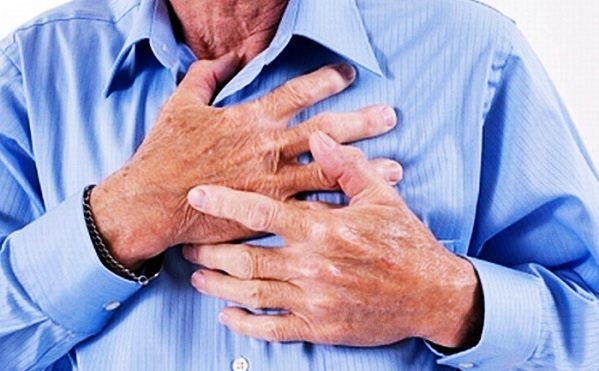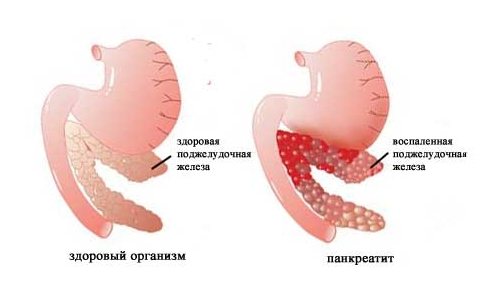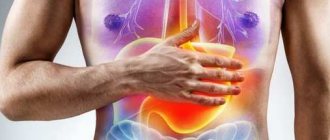Nausea on an empty stomach is a symptom of a nonspecific symptom, as it may indicate both gastroenterological and other pathological processes in the body. One should not exclude a completely natural explanation for this symptom: nausea can occur during prolonged fasting or following a diet that is not justified from a medical point of view.
- Etiology
- Symptoms
- Diagnostics
- Treatment
Nausea in the morning on an empty stomach can be symptomatic, but if it occurs frequently, you should seek advice from a specialist - this clearly indicates the development of a certain disease or the consequences of poor nutrition.
Nausea has no restrictions regarding gender and age: it can manifest itself both in childhood and in adulthood in men or women. Determination of the underlying factor is carried out through a physical examination and the necessary diagnostic measures. Treatment is often carried out with conservative therapeutic measures; in rarer cases, surgery may be necessary.
The clinical picture is nonspecific, so self-medication is strongly not recommended. This is fraught with the development of serious complications.
Pregnancy
Pregnancy is not a disease, but it is during pregnancy that every second woman experiences a set of symptoms called toxicosis. Nausea in the morning is often the first sign of an interesting situation. For some women, it occurs within a few days (weeks) after conception and usually goes away by the fourth month of pregnancy.
Expectant mothers begin to feel sick after waking up, often immediately after getting out of bed. Women describe this feeling as if there is a lump in the throat or as if a scarf tied too tightly around the neck is bothering them. Salivation and vomiting also appear. Doctors believe that the reason for this condition lies in the hormonal changes rapidly occurring in the body. Most of all, according to doctors, pregnant women suffering from diseases of the gastrointestinal tract feel sick.
Expectant mothers should not take any medications for nausea and vomiting without consulting a doctor. If nausea progresses to severe vomiting, which prevents you from eating, this can be corrected in a hospital gynecological department.
The main advice for pregnant women is not to get out of bed abruptly; before getting up, eat a cracker, a slice of apple or lemon. Peppermint candies, ginger or peppermint tea may also help.
Causes of morning sickness in women
Nausea is a concomitant symptom of various diseases. It is important to pay attention to other warning signs that will help your doctor make a diagnosis. Nausea cannot be ignored - it is necessary to identify its cause and carry out appropriate treatment.
Possible causes of morning sickness
Nausea implies discomfort, a feeling of heaviness affecting the epigastric region, chest, pharynx, and oral cavity.
Pregnancy
Women of reproductive age with morning sickness immediately suspect pregnancy. Nausea is an early sign and is observed in more than half of the cases. It appears more often in the morning, but can also bother you during the day, especially due to strong odors.
The cause of morning sickness during pregnancy is considered to be an increase in the level of human chorionic gonadotropin (hormone). Risk factors also include fatigue, increased stomach acidity, and low blood glucose levels.
Binge eating
The cause of morning sickness may be banal overeating at breakfast or at dinner the night before. Nausea in this case is accompanied by heaviness in the stomach, and heartburn is possible.
Regular overeating is fraught not only with an increase in body weight, but also with the development of various diseases. The digestive organs are primarily affected.
Features of the vestibular apparatus
If the vestibular system is weak, then in the morning when you get up suddenly, nausea may occur. It is usually accompanied by dizziness and weakness. Vomiting may occur.
Poisoning
Nausea is one of the signs of poisoning. Its common causes are alcohol, spoiled food, and drug overdose. In addition to nausea, poisoning may be accompanied by the following symptoms:
- headache;
- heaviness, pain in the abdomen;
- stool disorder: stool becomes watery, smells unpleasant, may contain undigested food particles;
- vomit;
- temperature increase;
- paleness of the skin.
Kinetosis
This pathology is also called seasickness or motion sickness. Nausea occurs due to the monotonous vibration of transport - not only sea, but also air or land. This symptom can bother you constantly or only in the morning, when a person wakes up and changes his body position.
Children under 12 years of age are most susceptible to seasickness. By gender, women are more often affected.
Stomach ulcer
This disease involves damage to the mucous membrane of the organ. Trophic disorders are provoked by hydrochloric acid, pepsin, and bile. The disease is characterized by a relapsing course.
Morning sickness with a stomach ulcer usually occurs after breakfast. The disease is also characterized by the following symptoms:
- body weight decreases;
- nausea may be accompanied by vomiting;
- heartburn;
- sour belching;
- pain in the epigastric region - usually occurs on an empty stomach.
Gastritis
This pathology also affects the gastric mucosa. It undergoes changes of an inflammatory or inflammatory-dystrophic nature. There are many possible causes of gastritis. More often it is an unhealthy diet, bad habits, prolonged use of certain medications, bacterial or fungal infection.
Morning sickness with gastritis can occur after breakfast. Attacks may recur throughout the day after eating. Nausea may be accompanied by the following symptoms:
- abdominal pain – manifests itself constantly or in attacks;
- sour belching;
- heartburn;
- stool disorder;
- increased salivation;
- heaviness in the stomach after eating;
- decreased appetite.
Pancreatitis
The disease affects the pancreas and involves an inflammatory process. There are many possible causes of the pathology, including poisoning (usually alcoholic), diseases of viral, infectious, parasitic, and fungal etiology. Morning sickness can occur when you go wrong with your diet, even if it happened the day before.
The acute phase of the disease is also characterized by the following symptoms:
- bloating;
- belching;
- vomiting – may be uncontrollable;
- poor general health;
- weight loss;
- increased gas formation;
- stool disorders.
Hypertension
With high blood pressure, nausea can occur not only in the morning, but also periodically throughout the day. The pathology is also characterized by the following symptoms:
- dizziness;
- headache;
- drowsiness;
- general weakness;
- floaters, spots before the eyes;
- noise in ears;
- change in heart rate.
Thyroid dysfunction
The cause of the pathology lies in hormonal imbalance and metabolic disorders. In addition to morning sickness, the following symptoms appear:
Diagnostics
If you experience recurring morning sickness, you should contact your doctor. Women of reproductive age should definitely visit a gynecologist. If you suspect a pathology of the gastrointestinal tract, it is better to immediately contact a gastroenterologist. If necessary, the patient will be referred to another specialist.
Diagnostic measures to identify the cause of morning sickness depend on associated symptoms. Standard tests include general blood and urine tests. If pregnancy is suspected, hCG tests are performed.
The following tests can also be used to identify the cause:
- stool occult blood test;
- pH-metry – examines the acid-forming function of the stomach;
- ultrasound scanning (abdominal and pelvic organs);
- X-ray;
- gastroduodenoscopy;
- endoscopy;
- tomography (computer, magnetic resonance);
- biopsy and histological examination of the sample.
Some diagnostic measures are needed to differentiate diseases with similar clinical manifestations. The presence of the same symptoms does not mean that the treatment should be identical.
Treatment of morning sickness depending on the cause
Nausea during pregnancy is normal and usually does not require treatment. A handful of nuts or dry cookies will help you cope with an attack.
Treatment of morning sickness can be symptomatic or pathogenetic. In the first case, only nausea as a symptom is eliminated, in the second, its cause is treated.
In case of poisoning, it is necessary to lavage the stomach and take enterosorbents: activated carbon, Polysorb, Smecta. You should consult a doctor to find out the cause of poisoning, since treatment largely depends on it. Antibacterial therapy may be required.
For stomach ulcers, antisecretory drugs are prescribed:
- M-anticholinergics: Atropine, Platiphylline, Metacin, Gastrocepin;
- H₂-histamine receptor blockers: Acylok, Ranisan, Ranitin, Famosan, Cimetidine, Histodil;
- proton pump inhibitors: Lansoprazole, Omeprazole, Omez, Pantaz, Rabeprazole, Esomeprazole.
For stomach ulcers, antacids are also used. They neutralize hydrochloric acid in gastric juice, eliminating heartburn, nausea and other symptoms of the disease. They resort to Maalox, Phosphalugel, Almagel, Gastal.
A prerequisite for treatment of gastritis is adherence to a diet. Its characteristics depend on the acidity - high or low. In any case, spicy seasonings, sauces, onions, garlic, pepper, smoked meats, and canned food are excluded.
In case of acute gastritis, the stomach is washed. Anticholinergics, antacids, and antispasmodics are prescribed as drug therapy: No-Shpa, Halidor, Andipal. Antibacterial therapy may be required. If nausea is accompanied by vomiting, then they resort to prokinetics. Enterosorbents are also prescribed.
In case of exacerbation of pancreatitis, fasting is necessary - food is completely excluded for several days, then treatment table No. 5p is prescribed. It is recommended to drink mineral water: Narzan, Essentuki (No. 4, No. 17). Antisecretory drugs are also prescribed as symptomatic treatment.
Treatment of the underlying disease will help get rid of nausea due to hypertension. Antihypertensive drugs are prescribed individually by a doctor. In some cases, specialist supervision is necessary to select the correct dosage.
For endocrine diseases, thyroid hormones or thyreostatics are usually prescribed. With the right medicine and dosage, nausea will quickly pass.
General recommendations
A few tips will help you get rid of morning sickness or reduce its intensity:
- do not overeat at night;
- last meal at least 2.5 hours before bedtime;
- Before going to bed, you should ventilate the room; it is useful to take a walk in the fresh air;
- do not get up abruptly, do not immediately begin high physical activity after waking up - the body must be allowed to wake up;
- Take medications strictly as prescribed by your doctor, observing the dosage and duration of therapy; if adverse reactions develop, consult a doctor - you may need to change the medication.
Morning sickness can be a companion not only to pregnancy, but also to a number of serious diseases. A doctor can find out the cause of this ailment. To do this, it is necessary to conduct a diagnosis and identify other unpleasant symptoms. Treatment depends on the cause of nausea and is usually based on medication and diet.
Source: https://morewomen.ru/info/podtashnivanie-po-utram-prichiny-u-zhenshhin/
Gastrointestinal diseases
If you try to find out from your doctor the cause of nausea in the morning, he will first suspect diseases of the digestive system. Indeed, such a symptom is characteristic of a number of pathologies.
- Gastritis is a very common cause of morning sickness, often accompanied by pain in the stomach. The pain intensifies if you eat something spicy, salty or fatty for breakfast. Untreated inflammation of the gastric mucosa can lead to ulcers.
- Esophagitis is inflammation of the esophagus. In addition to nausea, the patient is bothered by the feeling that a lump is stuck in the throat and behind the sternum.
- The answer to the question of why you feel sick in the morning may be cholecystitis, that is, an inflammatory process in the gallbladder. In this case, there are other signs: pain in the pit of the stomach, vomiting mixed with bile.
- Pancreatitis, a disease of the pancreas, may also be an explanation for why you feel sick in the morning after sleeping or eating a heavy meal. Poor health with pancreatitis is aggravated by severe belching, which provokes bitterness in the mouth, and upset stool.

Symptomatic therapy
If unpleasant symptoms are caused by taking medications, it is enough to change the time of taking the medications or take them after a small snack. In case of severe intolerance to pharmaceutical drugs, doctors recommend parenteral methods of administration. Mild nausea in pregnant women, which does not violate or slightly violates the diet, does not require correction. The woman is recommended to eat frequent small meals, maintain psychological peace, and do feasible gymnastics. Severe toxicosis is an indication for hospitalization.
Since nausea on an empty stomach is associated with various diseases, to relieve it it is necessary to carry out etiotropic, pathogenetic treatment of the underlying pathology. Until the root cause of nausea is determined, herbal teas (chamomile, ginger) can be used to reduce discomfort; prokinetics, antacids, and mild sedative herbal remedies are prescribed as medications. If a symptom is combined with repeated vomiting, severe abdominal pain, or problems with general condition, you should immediately consult a doctor.
Diseases of blood vessels and nervous system
The reasons for nausea in the morning may be associated with various pathologies of the cardiovascular system and central nervous system.
- Hypertension is manifested not only by headaches when blood pressure rises, but often by nausea, dizziness, and blurred vision. You should not ignore such symptoms in order to avoid a hypertensive crisis or stroke.
- Heart disease - if in the morning nausea is accompanied by pain and a feeling of squeezing in the heart area, numbness and tingling in the left half of the body - this may indicate the onset of a myocardial infarction.
- Vegetative-vascular dystonia - why VSD occurs is not completely clear, but morning nausea is one of the typical signs of this syndrome. As a rule, nausea is preceded by trembling of the hands, increased secretion of saliva and sweat, and an attack of anxiety. Also, with VSD, dizziness begins, and short-term distortions of hearing and vision appear.
Only a medical specialist can determine exactly why a person feels sick after sleep. After listening to the patient’s complaints, he must prescribe additional examinations: if gastrointestinal pathology is suspected - gastroscopy, ultrasound of the abdominal cavity, if there are symptoms of vascular diseases - an electroencephalogram or ultrasound of the vascular system. Without an accurate diagnosis, starting treatment on your own is dangerous to your health.

Etiology
Causes of nausea on an empty stomach:
- duodenitis - inflammation of the duodenum;
- esophagitis;
- gastritis;
- biliary dyskinesia;
- pancreatitis;
- cholecystitis;
- food allergies;
- parasitic diseases;
- cardiovascular diseases;
- poor nutrition;
- constant feeling of hunger.

Pancreatitis is a likely cause of nausea
Nausea after eating or prolonged hunger can bother women during the first trimester, which will not be a pathological process in itself, and therefore does not require specific treatment.
Other reasons
Those who drank alcohol the day before should not wonder why they feel sick in the morning. When poisoned by alcoholic drinks, a person will definitely feel sick, and if there is too much ethanol in the body, then he will vomit. This condition will not stop until the remaining alcohol leaves the body. A person can speed up this process by using an anti-hangover remedy purchased at a pharmacy, taking a contrast shower, or, finally, using folk recipes: drinking brine, tomato juice or tea with lemon.
Many people do not know that smoking greatly affects the stomach, especially if you have a habit of smoking on an empty stomach. Irritation of the stomach lining by cigarette smoke can cause morning sickness.
There are many reasons why children experience nausea in the morning. Very often, children refuse to eat breakfast because they feel unwell due to infection with worms. Helminths not only prevent nutrients from being absorbed in the child’s intestines, but also poison the body with the products of their vital activity. First, attacks of nausea appear, then the child loses his appetite and loses weight. You can get rid of parasites using various medications designed specifically for children. To prevent re-infection, you should follow a simple rule - thoroughly wash food and hands before eating.

Attacks of nausea appear in children with surges in blood pressure, food poisoning, viral diseases, migraines and traumatic brain injuries.
Both children and adults can feel sick after sleep as a result of banal overeating at night, so you should stop looking in the refrigerator a few hours before bed.
Gagging without vomiting: reasons, what to do
Sometimes we feel discomfort, which is caused by gagging without vomiting, a feeling of nausea, and vomiting. Vomiting is an unpleasant internal state resulting from nausea. A complex reflex process - the stomach and esophagus begin to contract convulsively. Ultimately, it does not help the body rid itself of stomach contents.
Urges have characteristic features:
- frequent, optimal time for appearance, manifestation – morning;
- frequent urges become chronic;
- can be an independent manifestation of a pathological change in the human body, or be a symptom of another specific disease;
- be accompanied by vomiting, have nothing to do with it.
Vomiting in the morning is a common phenomenon experienced by a person throughout life. Women in an “interesting” situation in the first stages of pregnancy complain about it.
Causes of frequent retching without vomiting in an adult
- Psychological impact: fear, anxiety, stress.
- Manifestation of diseases associated with neuralgia.
- Anomalies in the structure and function of the heart.
- Girls have early stages of pregnancy.
- The result of increased intracranial pressure.
- The body's response to the pharmacological characteristics of a medicinal product.
- Changes in the menstrual cycle.
- Smoking and regular drinking of large quantities of alcohol.
Symptoms of constant vomiting:
- nausea;
- constipation;
- abdominal pain;
- general weakness;
- belching with an unpleasant odor;
- increased salivation with a sour taste;
- heartburn;
- increased heart rate;
- the appearance of dizziness;
- loss of consciousness;
- spasms;
- fainting;
- increase in body temperature.
The condition not only deprives an adult of peace. As an infant, a child, due to the appearance of congenital pathologies, has the opportunity to experience the manifestations of gagging. A huge number of reasons can cause an unpleasant condition:
- appearance of the first teeth;
- eating large amounts of food;
- the appearance of a feeling of nausea when traveling in transport;
- congenital pathology;
- diseases that interfere with normal breathing;
- diseases of the central nervous system;
- the result of infectious diseases;
- migraine;
- a side effect of diseases that records an increase in body temperature.
Constant vomiting is observed in a child with pyloric stenosis. The disease is manifested by a strong increase in the muscles of the sphincter of the stomach, inhibiting the movement of food into the duodenum. The first months of life, the child literally “devours” an excessive amount of air while eating. The phenomenon is called aerophagia and is a factor in the appearance of gagging without vomiting in newborns.
Diagnostic measures related to the treatment of vomiting:
- correct and accurate history taking;
- clinical and biochemical blood sampling;
- examination of internal organs.
Treatment
- Drink more water.
- Increase your sugar level - eat candy, drink sweet tea.
- Eat foods that do not contain fiber: soups, oatmeal, toast, cereals.
- Eat more often, in small portions.
- Limit the intake of caffeine into your body.
- Learn to relax - it will eliminate the urge to vomit.
- Use breathing exercises.
- Do yoga.
- Rinse your nose regularly with saline solution, sea water or special pharmaceutical drops.
- Eat in the morning.
- Monitor your water-salt balance.
Nausea is a painful sensation in the epigastrium, esophagus, and oral cavity.
The body’s natural reaction to unfavorable conditions, pathological changes in the functioning of the digestive system. It is a common sign of disease.
Types of nausea:
- central – with irritation of the nerve center;
- reflex – for diseases of the gastrointestinal tract, urinary system;
- hematogenous-toxic reaction to the action of a substance poisoning the body.
In an adult, a feeling of nausea will occur when:
- individual reaction of the body to the action of certain medications;
- constant changes in blood and intracranial pressure;
- brain injuries, concussions, bruises of various shapes and degrees;
- severe anxiety and fatigue;
- increased levels of adrenaline and all kinds of stressful situations.
- toxicosis;
- the appearance of tumors in the brain;
- changes in the body associated with old age;
- menopause;
- spinal injuries;
- pathological work of the eye muscles;
- frequent headaches;
- cerebrovascular accident;
- when exposed to toxic substances.
Common causes of nausea:
- starvation;
- binge eating;
- manifestation of intoxication of the body;
- temperature increase;
- helminthic infestations;
- eating excessive amounts of sweets;
- eating sweets on an empty stomach.
Symptoms of nausea:
- diarrhea;
- profuse vomiting;
- severe weakness;
- a sharp drop in blood pressure;
- headache.
Diagnostic measures include:
- general, clinical blood test;
- blood sampling for biochemical testing;
- scatological, endoscopic studies;
- Ultrasound, radiography of internal organs.
Providing first aid for severe nausea
The way to get rid of the painful, strong feeling of nausea:
- be in a horizontal position;
- get a flow of fresh air;
- if the pressure is below normal, the patient needs to drink coffee or sweet strong tea;
- use sedatives for stress and emotional overstrain;
- use mint candy;
- drink mineral still water in small sips.
Negligence and self-medication are strictly prohibited. Consult a doctor and follow his recommendations. The doctor determines the root cause and prescribes the correct treatment.
Vomiting is the result of the interaction of nausea, retching, accompanied by emission of vomit from the body through the oral cavity. An unpleasant reflex disease is regulated by the vomiting center, whose habitat is the medulla oblongata.
Vomiting is promoted by:
- poisoning;
- food allergies;
- binge eating;
- infectious diseases;
- intoxication of the body;
- early stages of pregnancy;
- abdominal diseases;
- small intestinal anomaly, obstruction;
- cleansing the body of toxic or harmful substances;
- dysfunction of the central nervous system;
- emotional disorders;
- deviations in the functioning of the cardiovascular system;
- deviation from the norm of the functions of the digestive system;
- hypoxia – oxygen starvation;
- pathological changes in the structure of the myocardium;
- decreased heart function;
- increased intracardiac pressure;
- swelling of tissue in the chest area;
- oncological diseases;
- adolescence and gender;
- viral infections;
- pathology of the endocrine system;
- the body's reaction to the influence of drugs;
- visceral pain;
- manifestations of neuralgia;
- eye disease;
- febrile conditions.
The gag reflex without nausea and without urge is more often recorded in children while brushing their teeth. The child pushes the brush deeper than it should, leading to irritation of the root of the tongue, promoting vomiting.
Symptoms of vomiting:
- lethargy;
- dehydration;
- heartburn;
- dizziness;
- headache;
- muscle pain;
- increased amount of gas formation in the intestines;
- diarrhea;
- profuse salivation with a sour and sometimes bitter taste;
- heavy sweating;
- increased heart rate;
- darkening of the eyes;
- spasms of the intestines and stomach;
- fever and chills;
- yellowness of the skin and sclera;
- rapid, deep breathing.
A complication of vomiting is dehydration.
Diagnosis of the gag reflex:
- careful history taking;
- treatment of associated complaints and symptoms;
- clinical and biochemical blood tests;
- CT scan of the brain.
Treatment for vomiting depends on the cause and includes:
- seeking medical help from a doctor;
- strict adherence to the recommendations of the attending physician;
- preventing the development of complications of the root cause of the gag reflex;
- taking antihistamines as prescribed by a doctor.
We conclude: gagging, feeling of nausea, vomiting cannot be cured. It is necessary to treat the root cause - the disease that caused the illness. By showing genuine attention to the state of the body, you will be in good shape and will forget about the symptoms of the urge to vomit.
Source: https://GastroTract.ru/simptom/toshnit/rvotnye-pozyvy-bez-rvoty.html
What do these symptoms and signs indicate?
To begin with, I would like to look at all the previously mentioned symptoms separately:
1 Often, the lack of appetite goes almost unnoticed for people; they simply do not pay attention to the reluctance to eat, motivating this with insignificant reasons. But lack of appetite, when you don’t feel like eating for a long time, is a fairly serious symptom that can disrupt the nutritional balance in the body—the balanced ratio of essential nutrients. Not eating for a long time leads to a drop in blood glucose levels, which in turn excites receptors in the digestive system and sends a signal to the brain, causing a feeling of hunger. If there is no appetite, then the reason may lie in the brain being busy with completely different problems, or in the presence of diseases of the gastrointestinal tract.
2 What does nausea mean, frequent or periodic feelings of nausea or nausea that can cause such unpleasant symptoms? Nausea is severe discomfort in the esophagus and stomach that precedes gastric emptying. This symptom is key in diagnosis, as it helps in determining the cause of poor health.
3 Weakness, lack of strength, fatigue, chronic lack of strength is a lack of physical strength and energy to perform even the simplest actions. Surely every person has encountered a similar condition more than once in his life, associated both with banal physical fatigue and with some kind of disease. But if a person has sweetness very often, then this is already an alarming symptom, especially when the person rests for a sufficient amount of time.
Nausea, weakness and loss of appetite individually are a sign of many pathological conditions. But what can their simultaneous appearance indicate?
Common causes of lack of appetite and nausea, severe weakness (illness)
The most common causes of nausea, weakness and loss of appetite should be included in a separate group:
1 Diabetes mellitus and severe weakness, no appetite (almost no desire to eat at all) - a violation of the full metabolism of carbohydrates and water in the body. The danger of this pathology is that it can remain in a latent form for a long time, and its clinical manifestations arise only when insulin deficiency becomes quite serious.
2 Neurosis (one of the popular reasons why people almost completely refuse to eat) is a group of functional psychogenic disorders in which a person is able to leave his comfort zone. Increased anxiety and sudden mood swings can negatively affect the patient’s appetite, after which nausea appears and, as a result, excessive weakness.
3 Malfunction of the thyroid gland (can affect a person’s decreased appetite) - diseases of this organ lead to disruption of the secretion of hormones, which can negatively affect the functioning of the entire body. Treatment of such pathologies is quite long and complex.
4 Malignant neoplasms (manifest in the form of many different symptoms, common of which are (headaches, fatigue, emptiness, lack of vitality, nausea, nausea and even vomiting)) - in most cases, oncology is detected by chance during a routine examination. However, in most cases, the development of these diseases is signaled by symptoms such as nausea, especially in the first half of the day, deterioration in general health and loss of appetite.
5 Anorexia (a disease most often caused by a physiological factor (frequent refusal of food)) is a mental illness manifested in eating disorders (often accompanied by severe nausea and vomiting after eating). Women suffering from this disease drive themselves to exhaustion in pursuit of an ideal figure. As a result, over time, they develop an aversion to any food, and rapid weight loss leads to severe weakness and deterioration of their general condition. Against the background of anorexia, serious diseases of the endocrine and digestive systems often develop, causing nausea.










